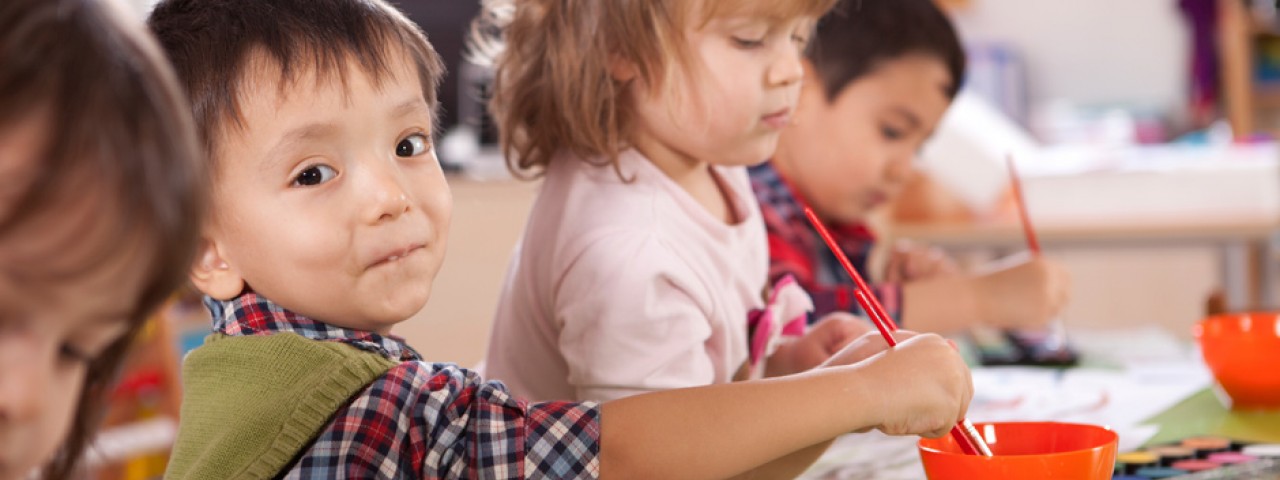Quality Pre-K Proven To Benefit Children
- Tweet

We often hear about the achievement gap—the distinct academic disparities that exist between groups of students, primarily between middle-class students and students from lower-income families. Decades of research confirm that a combination of in-school and at-home factors contribute to these differences. We tend to focus our attention solely on what can be done at school to close these gaps—after-school tutoring, increased time spent on math and reading, and additional initiatives targeting students once they’re already behind. However, the truth boils down to the fact that too many students show up to the first day of kindergarten unprepared to learn. Simply put, the readiness gap becomes the achievement gap.
Through participation in high-quality pre-kindergarten programs, children are provided with essential early learning experiences that enhance their social and emotional development. While cognitive development is paramount, Pre-K is equally about school readiness, which encompasses language and literacy, thinking skills, self-control, and self-confidence. Children learn about language by listening to words, and Pre-K strengthens vocabulary and readiness to read. Pre-K encourages and leads children to think conceptually and connect concepts to form new ideas. Pre-K teaches children how to act in school, what good behavior is, and why it's important to listen to teachers.
The research of quality Pre-K programs shows the benefits last well beyond the elementary school years, impacting key adolescent and adult indicators of achievement. Children who attend quality Pre-K are more likely to graduate from high school and college, and graduates have more options for successful lives. These children grow up to become less likely to be arrested, rely on governmental assistance, or be involved in violent or drug-related crimes at age 40. They are more likely to become homeowners, be employed, have savings accounts, and earn more than $20,000 per year in their adult years.
As Nobel Prize winning Professor James Heckman explains, “skills beget skills”. By instilling a foundation of healthy social-emotional development in Pre-K, children enter kindergarten with a stable base to be built upon for future learning. The social-emotional skills taught in Pre-K classrooms ultimately allow children to resolve conflicts, persevere in challenging situations, and understand consequences—all vital components for thriving throughout life. Through giving children a fair chance to start school on the same playing field, Pre-K has the power to not only significantly contribute to closing the achievement gap, but also create future resilient, successful community members.To learn more, click here to read our infographic about the benefits of Pre-K on our children and our community.
